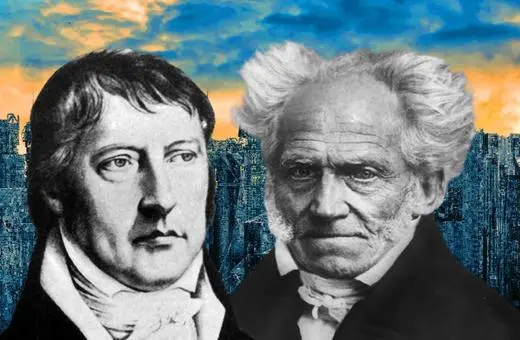What if the goal of philosophy isn’t to resolve life’s mysteries, but to live with them? In a world shaped as much by experience as by abstract thought, Cambridge University Fellow Orfeas Chasapis Tassinis argues for rejecting the reductionist view of thinking. Rather than competing with the richness of lived reality, he proposes that our concepts are tools, not total truths. And that philosophy is at its best when it helps us inhabit life more fully, not explain it away. In an open, uncertain world, life can be a journey—and a mystery—without anything needing to be left behind.
You may have heard this before: life is a journey. But is this assertion conceptually sound? Going on a journey is something that people do as part of their lives. It cannot possibly be that you can describe life in terms of just one aspect of human experience. From this perspective, life definitely cannot be a journey in any strict analytical sense. Not only that, but it would seem that life cannot even be like a journey. What cannot hold true in logic seems equally bound to fail as metaphor, much like saying that ‘your body is your finger’ should not make much sense, even as a metaphor. In short, some aspect of life may well be like a journey, but the whole seems incapable of being collapsed to the part, in metaphor or not.
___
The whole seems incapable of being collapsed to the part, in metaphor or not.
___
This is not just a problem about life being a journey. Every attempt to make statements along the lines of ‘life is X’ seems bound to end in paradox. No candidate ‘X’ seems to exist apart from the human experience, making it intrinsically a part of the very same life we are trying to describe.
Of course, one could argue that describing life in terms of its purely physical aspects could work. Consider, for example that your life can be described in terms of your breathing, heart beating, etc. But this too would not cut it. First because, by definition, it would only describe ‘a’ part of life, that is the physical aspects. Second because, in describing these so-called physical aspects (in terms of chemistry, physics, etc) we would already be using categories and concepts (such as organs, bodily functions, all the way down to molecules and atoms) owing their existence to our very human cognitive capacities (to be clear, I take physical reality to be a real thing, but how we describe it seems inescapably human, more on that later).
 SUGGESTED READING
No one escapes their perspective
By Jason Blakely
SUGGESTED READING
No one escapes their perspective
By Jason Blakely
Crucially, this is also not just a problem about life. It generally extends to notions that seek to describe ‘wholes’ in terms of only some of their parts. Take for instance, the cosmos itself. Before popularized by Pythagoras as a way to describe the universe, a common meaning of the ancient Greek word ‘cosmos’ was ‘ornament’ or ‘jewel’. But how can the entirety of the cosmos, in the modern-day English sense, truly be described through only a part of it? This seems hard, even if the ‘part’ is not taken in its literal form but in terms of the things it represents, such as beauty or order, given that ugliness and chaos are also of this world. Generally, it would seem that whenever we are describing a whole in terms of only some of its parts (‘life is a journey’, etc) we are bound to leave something outside in a manner that should not work.





















Join the conversation